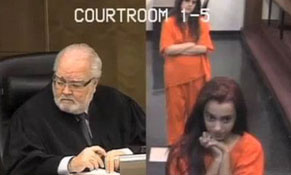An article was posted in today’s Seattle Times titled, “Ignition-Lock reality,” that discusses some interesting ideas regarding how to enforce and make sure people required to have ignition interlock devices installed in their car actually have them installed. This stems from an incident last week where a man with multiple DUI convictions was driving without a required ignition interlock in Seattle, struck and killed several pedestrians, severely injuring a mother and child. There is an allegation he was over the legal limit and his ability to drive was impaired due to alcohol consumed.
Obviously this is a tragic event and my heart goes out to those families that lost loved ones because of this accident. It particularly hits home for me because my family and I live in that area where the accident occurred, and my wife and I have crossed that street with our young daughter. Now the purpose of making this post is not to discuss what this guy did. I try not to blog about current cases out of respect for the legal process, the defendant, the prosecution, and the victims. But I did want to discuss a point that was raised in this article. Should law enforcement check on every individual required to have an ignition interlock device to make sure they are installed in every vehicle they drive and the individual is in fact using them.
Unfortunately I do not believe this will ever happen. Not because it is a bad idea, or infringes in peoples constitutional rights. But simply due to the cost. I don’t know or have any figures on this. But to dedicate a program where the sole mission is to check on people who have been ordered to install ignition interlock devices would be extremely time consuming and costly. When you factor into the number of DUI arrests that occur in Washington State that require people to have some type of restricted license, that is a lot of cases. I just don’t think something like this would ever be feasible.
The other issue I see in addition to the cost and time is how it would be enforced. Let’s assume someone has the IID installed in their vehicle. But they have several vehicles. A program like I describe above exists. The police check on this person, see they have an IID, and conclude the condition is satisfied and move onto to the next case. That person then uses another vehicle to drive without an IID and nobody ever knows. Or let’s say a person doesn’t own a vehicle so they decide to sit out the license suspension and choose not to drive initially. But one night they get their hands on a vehicle and drive without the ignition interlock device. My point is there is nothing law enforcement can do. If somebody wants to drive without an ignition interlock device they will do it. It is that simple. And in the unfortunate situation where somebody is injured, people are going to wonder why no IID was installed. Because there is just no way to monitor someone 24 hours a day.
Now this article seems to suggest that a majority of people are choosing not to install an IID when required. I can’t speak for that, I can only speak in my experience. In my career as both a public defender, and private Seattle DUI Lawyer I can only think of one or two individuals who did not get the IID installed when required. Maybe there is more and I never knew about it. But over 8 years that is a good chunk of people. The reason I think my clients do what is required, is because they understand all the consequences before agreeing to do something. When they are first arrested I go over every possible scenario, explain what would be expected of them if a particular situation arises, etc. I tend to think that most people in Washington State are responsible citizens of this State and if the DOL or Court requires it they do it. So I’m not sure what this article is getting at, but that is just my opinion.
If you have any thoughts on how to make such police check on IID program work, write a comment. Or if you feel it would be an unconstitutional search let me know.

